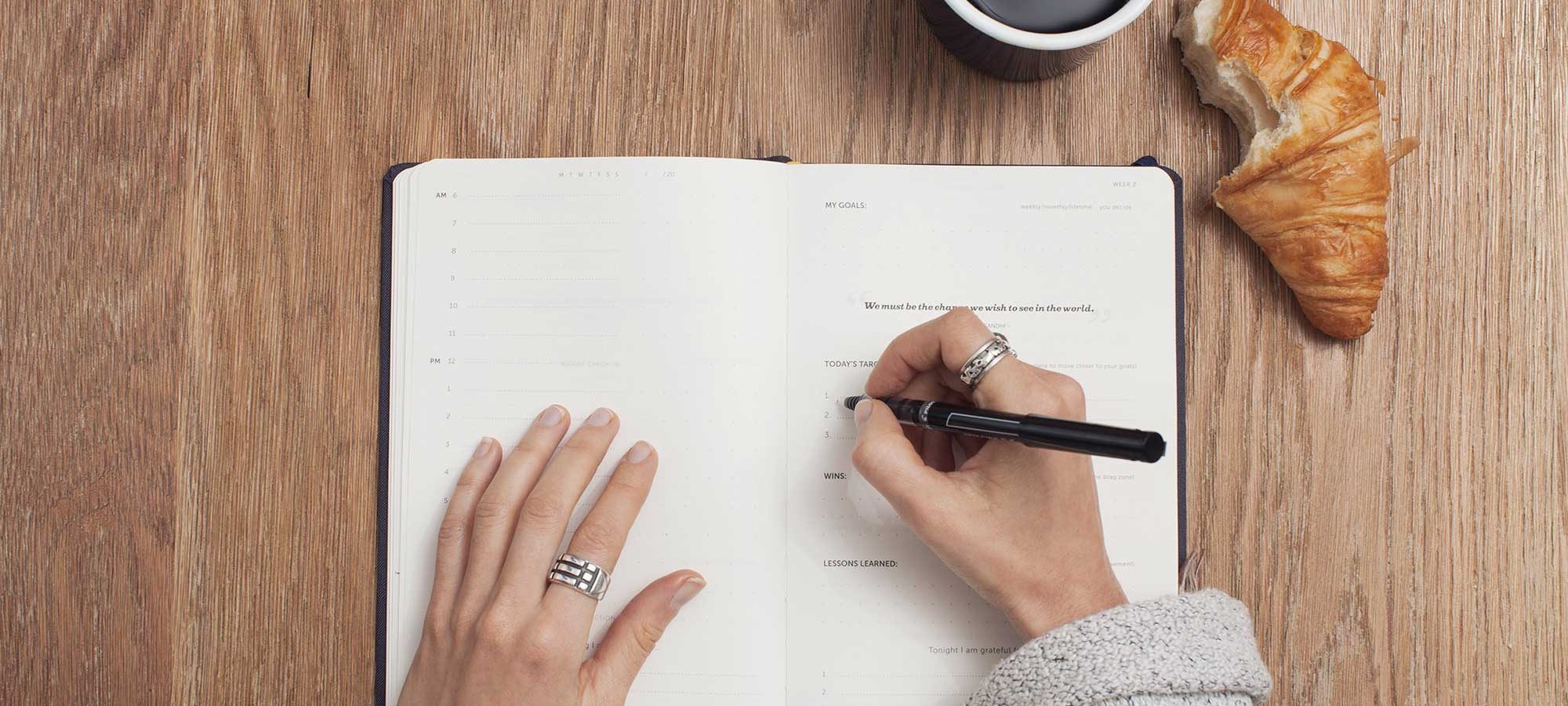What are the mental and emotional benefits of journaling?
Journaling allows us to practice gratitude in a more meaningful way. You can do this by writing and taking photos to savor the good in your life and reflect on it. This takes it a step further from simply experiencing gratitude in the moment, by extending it, actively thinking about it, and reflecting on your feeling of thanks for the great things in your life.
Writing is a fantastic way to externalize thoughts and physical pain to broaden your perspective. The mere act of writing your thoughts or symptoms down and seeing them creates space and distance to consider them in a more objective way. This borrows from the Acceptance and Commitment Therapy (ACT) concept of cognitive diffusion. The idea is that you are not your thoughts, emotions, or physical symptoms, instead you are the context in which they occur. Writing, speaking with a friend, going to therapy all help with this. Next time you have a negative thought, first notice it. Next, view yourself as a chessboard (common metaphor in ACT), with your thoughts, emotions, or physical pain as the pieces. You are the context in which the pieces are battling (the board), not the pieces themselves. You get to choose the effect they may have.
How to start journaling
It is helpful to consider prompts or goals for shifting your perspective. One idea is to separate what you can and cannot control and then focus on the former. This also helps to reduce emotional reactivity. You can also consider:
- What bad pattern did I reduce today? How did I practice self-control?
- How am I better than yesterday?
- Am I proud of the way I reacted? Were my decisions justified?
- How can I do better? What would be another way to respond to a difficult situation today?
What’s the best way to write about a stressful situation without it making you feel worse?
The best thing to do is to process the situation with empathy for all parties involved. This means considering the other person’s perspective and creating more understanding as to the motives to some of his or her actions. When we humanize others and put ourselves in their place, we are more able to move forward and feel less resentment.
Journaling helps to unfasten fixed biases which cause us to view an already difficult situation even more adversely. It is important to recognize how this tendency to assume the worst is usually sustained by a self-protective mechanism to avoid disappointment or from the expectation of being hurt by others. This is usually a trauma response that is rooted in past painful experiences.
Lastly, the medium should be determined by what would be the easiest way for you to build this into your routine. Some people like to write on a word document because they can type quickly and edit their thoughts. Other like using the notes app on their phone because it is always accessible. While other people like using an old school designated journal as they find the act of physically writing cathartic and enjoy the level of processing when seeing their thoughts written out in front of them.

